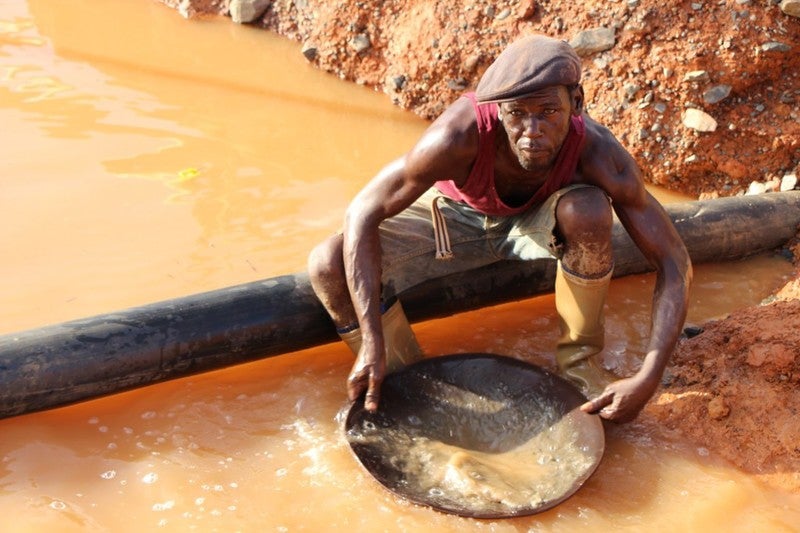
A new five-year programme launched by the United Nations aims to remove mercury from artisanal gold mining processes, claiming that the process poses a significant threat to human and environmental health.
The $180m Global Opportunities for the Long-term Development of the artisanal and small-scale gold mining (ASGM) sector (GEF GOLD) programme aims to tackle mercury-based mining methods.
The GEF GOLD programme is a partnership between UN Environment (UNEP), UN Nations Development Programme (UNDP), UN Industrial Development Organization (UNIDO), the Global Environment Facility, Conservation International and the governments of Burkina Faso, Colombia, Guyana, Indonesia, Kenya, Mongolia, the Philippines and Peru.
Backed by Global Environment Facility, GEF GOLD aims to reduce the use of mercury in artisanal gold mining and facilitate access to mercury-free extraction methods.
It will improve conditions for miners across eight countries while reducing harmful mercury emissions and supports regulatory and policy reforms to formalise ASGM across the programme countries.
Every year, gold production exposes millions of men, women and children globally to toxic levels of mercury.
UNIDO Programme Development and Technical Cooperation managing director Philippe Scholtès said: “The widespread use of mercury in the artisanal and small-scale sector affects the environment and people, particularly in developing countries.”
Accounting for 20% of the annual gold production across the globe, the ASGM sector is the single largest source of man-made mercury emissions and is responsible for releasing as much as 1,000t of mercury to the atmosphere every year.
Around 15 million people, including over 600,000 children, are currently working in the sector.
UNEP acting executive director Joyce Msuya said that mercury emissions impact health and ecosystems by contaminating the food, water and air.
GEF GOLD will eliminate the use of mercury and connect miners to markets for responsibly produced and sourced minerals.
Furthermore, the programme will help to ensure the gold value chain supports miners as well as provides consumers with access to ethically produced, environmentally sustainable gold.
According to studies, ASGM mercury exposure puts miners and their communities at risk of brain damage; vision and hearing loss; and delayed childhood development.
Additionally, the GEF GOLD programme will work with the private sector to promote compliance with international standards on responsible mineral supply chains.



